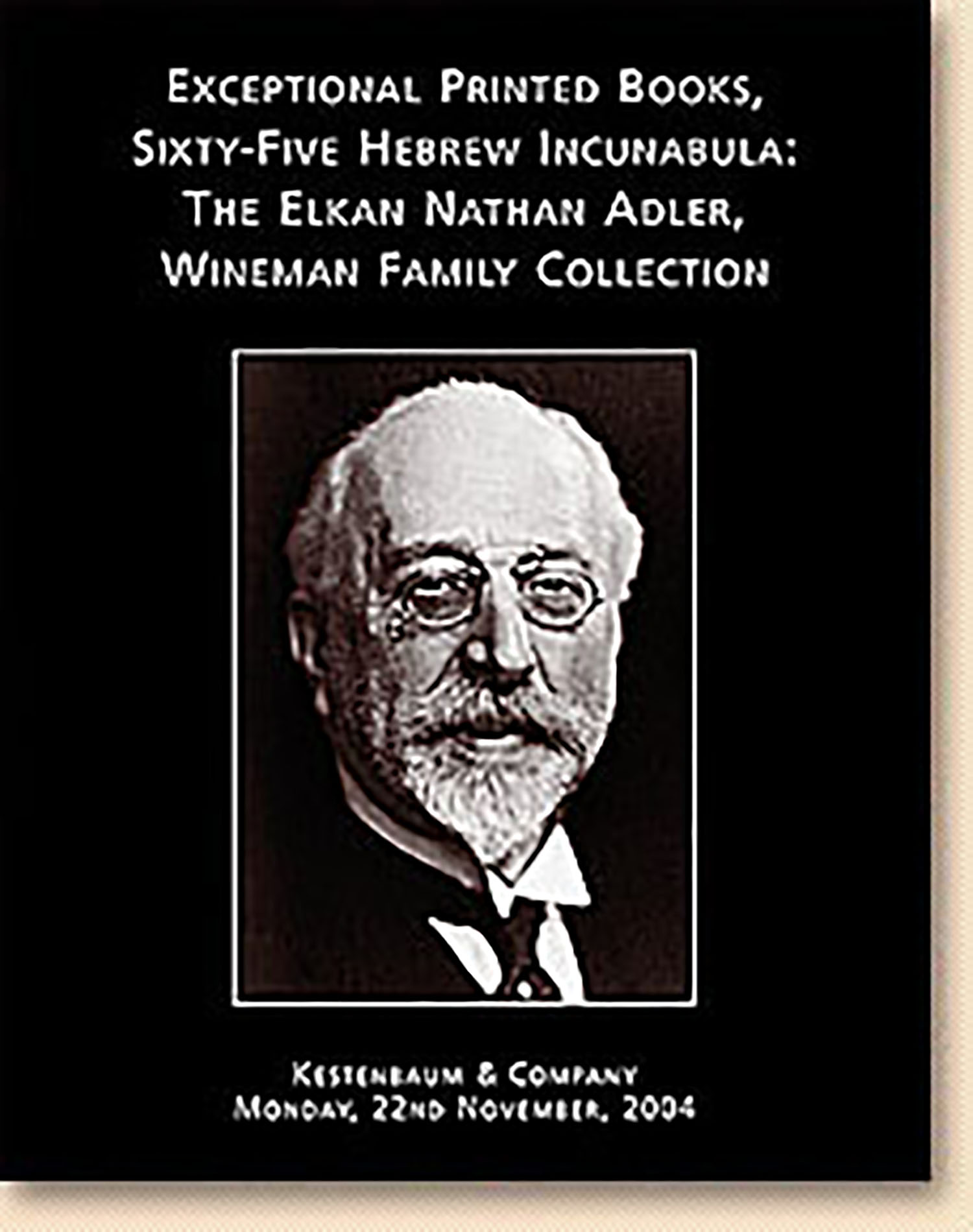Targum Onkelos [Aramaic Paraphrase of Pentateuch]

AUCTION 26 |
Monday, November 22nd,
2004 at 1:00
Exceptional Printed Books, Sixty-Five Hebrew Incunabula: The Elkan Nathan Adler-Wineman Family Collection
Lot 55
(BIBLE).
Targum Onkelos [Aramaic Paraphrase of Pentateuch]
(Faro): (Don Samuel Porteiro) (1487)
Est: $20,000 - $30,000
PRICE REALIZED $44,000
FIRST BOOK PRINTED IN PORTUGAL IN ANY LANGUAGE
This edition of Targum Onkelos was printed around the time of Porteiro's Faro Pentateuch of 1487, which is stated as being the first book printed in any language in Portugal ( - of which a single copy survives, printed on vellum, in the British Library, London). It is likely however that the text of that Pentateuch was printed after this Targum Commentary. Indeed, there are two pointers in favor of this edition taking “first title.” One, the Pentateuch is vocalized, whereas the Onkelos is not - it is logical that printers would begin with the simpler challenge. Secondly, precedents exist for commmentaries being printed before the main text of the Pentateuch. Garton and Alkabetz's Rashi and also the early Roman Rashi are cases in point. (See Wineman Cat. 55). See also M. Marx, On the Date of Appearance of the First Printed Hebrew Books in: Alexander Marx Jubilee Volume (1950) pp. 482-3; Joshua Bloch, Early Hebrew Printing in Spain and Portugal in: Charles Berlin (ed.) Hebrew Printing and Bibliography (1976) pp. 28, 30; A. J. Karp, Library of Congress catalogue, From the Ends of the Earth (1991) p. 15.
While there is much discussion in the bibliographic literature whether the press in Faro was owned by Don Samuel Porteiro or by Don Samuel Gacon, one is inclined to accept Bloch's suggestion that Gacon was the maecenas behind the press, while the actual work of printing was done by Porteiro, member of a family of professional printers. Bloch, op. cit., pp. 29-33
